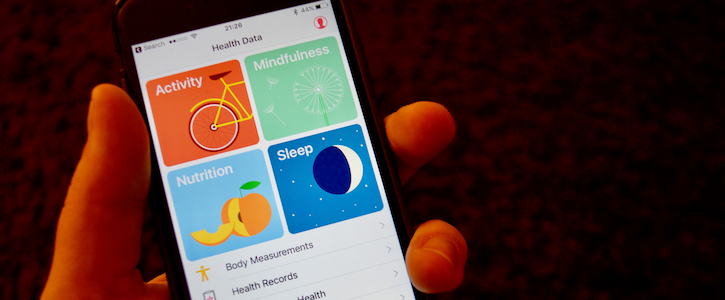Privacy Risks Could Plague Benefits of mHealth Apps
Clinicians must be more aware of the privacy policy of mHealth apps they are using and recommending to patients.

Photo has been modified. Courtesy of Forth With Life via Flickr.
The mobile health (mHealth) app market is on the rise. And a study published in the British Medical Journal found that the sharing of user data is routine, but far from transparent.
A team of researchers investigated how user data are shared.
The team started by identifying the top-rated medicine-related applications in the medical store category of Google Play in the U.S., U.K., Canada and Australia.
Using a crawling program, they identified 24 apps that pertained to medicine information, dispensing, prescribing or use, and were interactive.
Quinn Grundy, Ph.D., assistant professor at the University of Toronto in Canada, told Inside Digital Health™ that the research team created fake user profiles to interact with the applications. Grundy added that the team conducted a traffic, content and network analysis of the data sharing practices of the applications. The team used Agrigento, a program to eavesdrop and identify third parties by IP addresses.
Included in the results of the traffic analysis were the specific types of user data that the third parties received.
Some of the apps in the study shared sensitive data, such as a user’s drug list and location, which could potentially be transmitted among a mobile ecosystem of companies looking to commercialize these data.
It was found that 19 of the 24 apps studied (79 percent) shared user data. What’s more, 55 unique entities owned by 46 parent companies, received or processed app user data, including developers and parent companies and third-party service providers. Third parties advertised the ability to share user data with 216 “fourth parties.”
Based on the findings, clinicians should be more aware of the mHealth apps that they choose to use and should explain the potential for loss of personal privacy when recommended apps to customers.
Grundy said that due to the increasing popularity of health applications for consumers and clinicians, it is important to be aware of the privacy risks that come with them. Grundy believes that while there are opportunities for mHealth apps to transform healthcare, privacy factors are overlooked by government agencies and regulators.
“We wanted to raise awareness for consumers and clinicians that lack of privacy is a real risk that could be a negative result from the use of these apps,” Grundy told us.
Get the best insights in digital health directly to your inbox.
More mHealth Insights
Setting the Stage for Next-Generation mHealth
Podcast: Adoption of Healthcare Tech in the Age of COVID-19 with Dr Kaveh Safavi
June 22nd 2021Kaveh Safavi, MD, JD, global health lead of Accenture Health, discusses how the pandemic influenced the speed at which healthcare organizations adopted new technologies and how this adoption is impacting patient care.